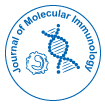Review Article
Re-thinking Vaccinology: “Act Universally, Think NK Cells”?
Geert Vanden Bossche*
Head of Vaccine Development Office, German Center for Infection Research, University Clinic Cologne, Belgium
- *Corresponding Author:
- Geert Vanden Bossche
Head of Vaccine Development Office
German Center for Infection Research
University Clinic Cologne
Joseph- Stelzmann-Str. 9b, D-50931 Cologne, Belgium
E-mail: geert.vandenbossche@live.be
Received date: August 05, 2017; Accepted date: August 23, 2017; Published date: September 7, 2017
Citation: Vanden Bossche G (2017) Re-thinking Vaccinology: “Act Universally, Think NK Cells”?. J Mol Immunol 2:112.
Copyright: © 2017 Vanden Bossche G. This is an open-access article distributed under the terms of the Creative Commons Attribution License, which permits unrestricted use, distribution, and reproduction in any medium, provided the original author and source are credited.
Abstract
Traditional and modern vaccines that are currently licensed for commercial use have proven safe and effective in fighting several infectious diseases; they are unquestionably among the most efficient tools for promoting individual, public and global health. However, the vaccine field is still facing important shortcomings in that the use of vaccines has not been successful yet in preventing many other, especially chronic, infectious diseases and that a therapeutic effect remains beyond reach of contemporary vaccines. As vaccine-mediated immune protection is widely acknowledged to result from the combined effect of specific target antigens and nonspecific immune stimulating agents, it is likely that limitations of conventional vaccinal antigens and adjuvants are responsible for these shortcomings.
This article aims at highlighting weaknesses in traditional vaccinology and calls for novel approaches to immune intervention to address those flaws and overcome the single-most important challenge in vaccinology, namely immune escape.
